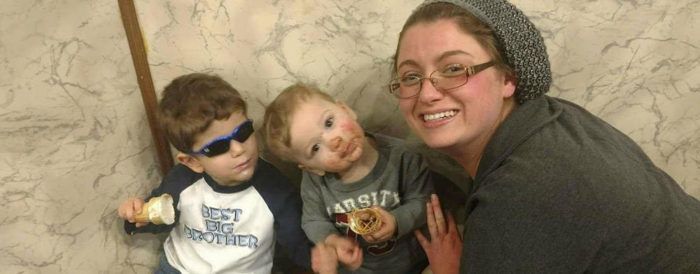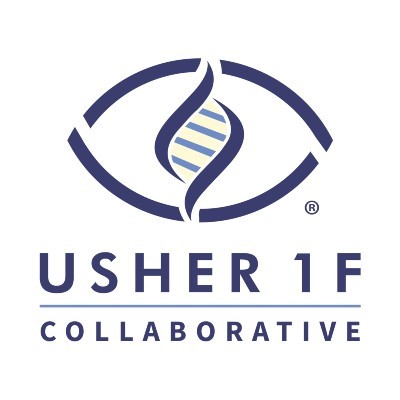
When I was born, my father thought I was perfect. My mother knew that something was wrong, but she couldn’t put her finger on it. This was in 1986, and newborn testing was sparse, often far off the mark, and many conditions went undiagnosed. Taking me from doctor to doctor didn’t help; no one could figure out what it was that so concerned my mother.
In fact, when she took me to an audiologist (who should have been the perfect candidate to recognize my symptoms), he placed me in front of a video of a monkey clapping its hands. When I responded to the visual cue by clapping my hands as well, he ruled out the possibility of deafness, attributing my response to the clapping sounds I’d heard!
After that year, it was indeed confirmed that I was completely deaf. My parents didn’t know anyone who was deaf, and they believed that in order for me to survive I needed to hear. It didn’t take long for them to find out about cochlear implants-what was at the time a newish, yet past the experimental stage, medical procedure. At the age of just three-years-old, I was New York University Hospital’s 13th patient to undergo a cochlear implant.
After my first implant, I could hear, but my verbal and auditory skills were virtually non-existent. Intense speech therapy several times a week helped me advance tremendously, and I painstakingly built up my vocabulary.
When it was time for me to go to school, my parents insisted that I be mainstreamed so that I’d grow up ‘normal’ in a world of hearing people. Thanks to the regulations of the NY Board of Education, and to my parents’ strong advocacy skills, I always had a shadow at my side.
At the age of 17, I was dealt a really crushing blow that made me forget about ‘discrimination’ against my deafness. Like most of my friends, I wanted the independence of driving my own vehicle. There was no reason I couldn’t drive, I thought.
Trouble started during a driving lesson when I was backing out of a driveway.
“Didn’t you see that car?” my instructor shouted, slamming on the brake to avert a collision.
“I didn’t!” I said, and promptly forgot about it.
Several days later, I was out with my father and, as we passed the recycling bin at the curb, I knocked into a few empty soda cans which were on the ground.
“What did you do that for?” my father asked.
“What?”
“Didn’t you see those cans?”
I hadn’t.
In the final test, my father held out his hand and said, “This is for you.”
“What?”
I didn’t see anything.
“Here! Here!” he almost shouted.
“Where?”
“Don’t you want 50 bucks?” He waved a bill in front of my nose.
I was a teenager; of course I could use 50 dollars. I simply hadn’t seen it.
“It may be Usher Syndrome,” the doctor suggested, after listening to our stories and completing an eye exam. “This means that you can see, but you don’t have peripheral vision. I’d advise you to check it out with a specialist.”
How can this be? I already have one disability! Why are You giving me another challenge? I questioned G-d. Why? Why are You throwing things at me like this? Enough! I was angry and inconsolable! I had worked so hard to build a solid life for myself despite being challenged with deafness. Why was I now being challenged with blindness as well?
As soon as we got home I locked myself into the bathroom to wallow in despair.
“Don’t do that!” my mother followed me. “Don’t let this stop you! You can continue! You will! You can do anything, Tzila!”
It took some time, but eventually my mother’s repetitive encouragement penetrated. By the time we confirmed the diagnosis with the specialist, I’d convinced myself that I’d have the absolutely least degenerative form of Usher’s possible (which means only a slight change every ten years or so). And I decided to focus on the here and now-not on the murky future.
Later, when I was in college, I joined the Helen Keller Foundation, where I learned how to use a walking stick and how to type on the computer without looking at the keys. Though I was hopeful that I’d never have to use these skills, I wanted to be proactive.
I don’t like using the walking stick. Unlike the cochlear implant, it’s quite noticeable-and the first thing people see when looking at me. I almost feel like it obscures the real me by pronouncing that first and foremost, I’m blind. However, when I do use it, it has its advantages. If I step on someone’s toes in Manhattan foot traffic, I’m bound to get yelled at or worse. If my walking stick mistakenly strikes someone, I’m more likely to be awarded with an apology! The stick also clears lines at ticket booths and supermarkets. After all, who won’t allow a ‘pitiful’ blind person ahead of them?
When I became a mother, I was nervous about how I’d hear my baby during the night (since I remove the cochlear implant before I go to sleep). At first, I tried a vibrating machine which shook my mattress when the baby cried. However, my husband didn’t like the way it vibrated so violently, and he offered to wake me when the baby cried. Other than that, I pretty much function like every other mother and wife.
During the day, I usually wear my implants so I can hear my kids. However, when I don’t, they know exactly how to pull my hand or tug my skirt to get what they want.
I received my Masters of Social Work from Hunter College and now work as a Recovery Specialist for the mentally ill. Indeed, my clients often tell me that, although I don’t speak as perfectly as most social workers they’ve worked with, they understand me better than anyone else. Why? Because I have a way of understanding them due to my own life experience. And if I can understand them, we can connect.
On one occasion, when I asked a new client to face me when speaking to me so that I could lip read, she burst out: “Oh! I’m so sorry! I had no idea you were deaf. I feel so bad for you!”
You feel bad for me? I wanted to tell her. Why? You are dealing with a severe mental illness that impacts your daily functioning! Why do you feel bad for me? I lead such a successful life! I’m happily married with two children. I have a job that I love. I have wonderful parents and friends! Why would you feel bad for me!?!
Then, I realized that the tools G-d gave me are the ones I need to deal with my personal life challenges. I wouldn’t be able to survive without the resources He gave me. But, my client wouldn’t be able to deal with my challenges; G-d gave her, the tools to deal with her own personal circumstances. I know that I can make it work.
Click here to read an update on Tzila's story written by her parents Carol and Julian Seewald in December 2022.
